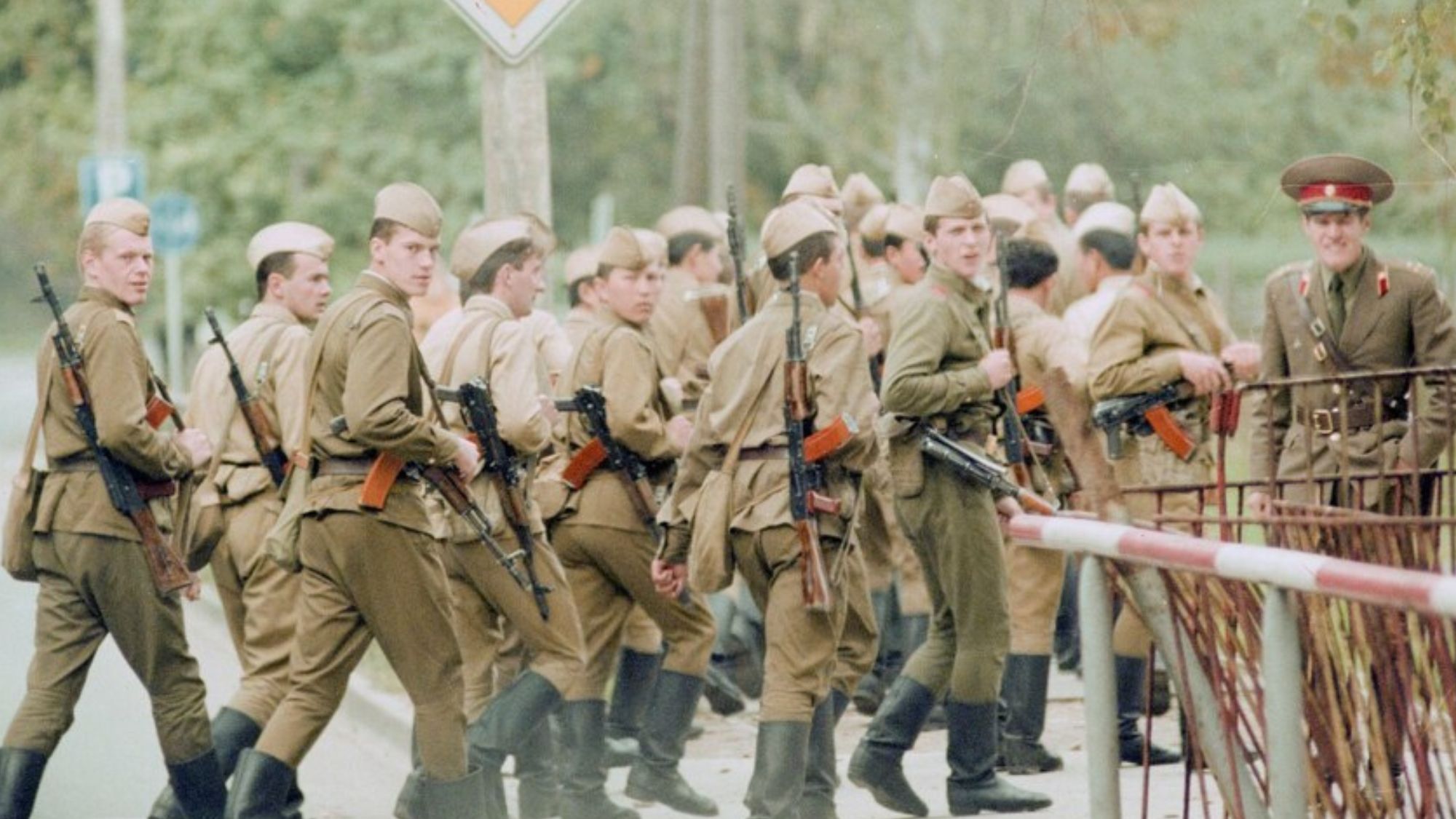Spies, Lies and Deception review: a 'blockbuster' at Imperial War Museum
Exhibition examines the role of real-life spies and military deception throughout history

A free daily email with the biggest news stories of the day – and the best features from TheWeek.com
You are now subscribed
Your newsletter sign-up was successful
From Ian Fleming to John le Carré and beyond, spying and deception have provided endlessly fertile ground for writers of fiction, said Matt Withers in The New European. The "real world of espionage", however, is no less fascinating than the fictional one. This "blockbuster" exhibition at the Imperial War Museum examines the role of real-life spies and military deception from the First World War to the present day, bringing to light a wealth of true stories through around 150 fascinating, often improbable, exhibits.
From "a fountain pen capable of firing a jet of tear gas" and "lipstick containing a hidden subminiature camera", to a 1980s boombox embedded with KGB surveillance equipment, the exhibition is packed with "scarcely believable" objects. It is a "remarkable" event, which shows that "while methods change, state-level deception lives on".
"Spies, Lies and Deception" is "a great introduction to the extraordinary stories, and extraordinary people involved in some of the most thrilling tales imaginable", said Nick Clark in the Evening Standard. Some of the episodes it covers will be familiar – such as the 2018 Skripal poisonings in Salisbury and "Operation Mincemeat", which saw fake invasion plans placed on a corpse to convince the Germans that the Allies wouldn't invade Sicily. Others, however, are less familiar, such as British attempts to convince German doctors during the Second World War that "the country's wholegrain bread caused cancer", and to persuade German women that soldiers were all contracting venereal disease abroad. There's also the story of Solomon J. Solomon, the artist who headed Britain's first camouflage section in 1915, and of the magician who was employed to misdirect the enemy ahead of the battle of El Alamein. All this is fascinating, although the show is let down by a disappointing final section on the future of espionage, consisting of little more than "a filmed discussion".
The Week
Escape your echo chamber. Get the facts behind the news, plus analysis from multiple perspectives.

Sign up for The Week's Free Newsletters
From our morning news briefing to a weekly Good News Newsletter, get the best of The Week delivered directly to your inbox.
From our morning news briefing to a weekly Good News Newsletter, get the best of The Week delivered directly to your inbox.

Nevertheless, there's much to marvel at here, said Simon Heffer in The Daily Telegraph. Among the ingenious items on display are a pair of overshoes used by agents in Southeast Asia, to create "the impression that the wearer had walked in the direction opposite to the one he had in fact taken", and a box of matches, one of which is a stylus "for writing secret messages". Perhaps most striking, though, are the exhibits that remind us of "the lethal dangers of espionage, and the heroic courage it takes to do it", such as a "sweater with a darned bullet hole" worn in occupied France by the agent Harry Rée; the hole was made when a German policeman shot him in December 1943. Rée subsequently escaped into Switzerland: others, alas, were less lucky. Overall, it's an exhibition "whose artefacts are excellent and whose labelling and provision of context are first-class".
Imperial War Museum, London SE1 (020-7416 5000, iwm.org.uk). Until 14 April 2024
Sign up to The Week's Arts & Life newsletter for reviews and recommendations
A free daily email with the biggest news stories of the day – and the best features from TheWeek.com